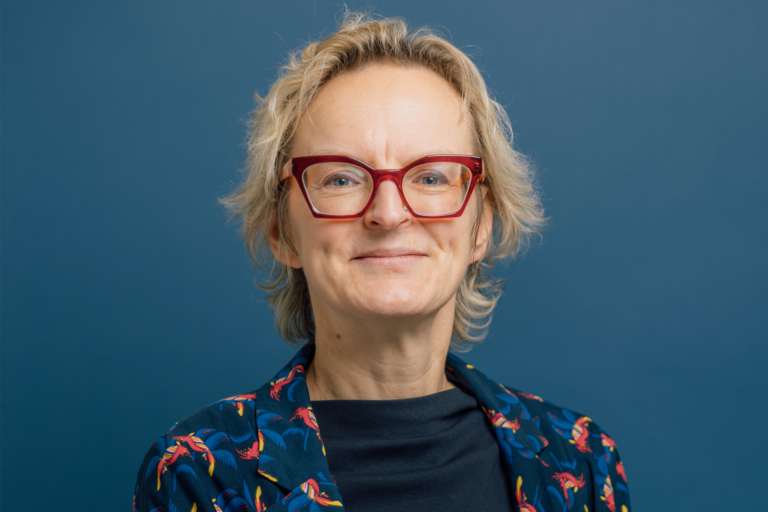Are you and your family prepared for the “Great Wealth Transfer”?
Over the next twenty to thirty years an estimated £5.5 trillion is expected to be transferred from Baby Boomers to Generation X in the “Great Wealth Transfer”. Yet YouGov found that of 1,000 adults across the country, only 60% of Baby Boomers intend to leave money to the next generation, and only 17% have any kind of formal plan in place.
What is the “great wealth transfer”?
The generational wealth transfer references inheritance after death or a gift from one generation to another; huge amounts are transferred to beneficiaries every year.
Over recent decades, rising levels of household wealth in the UK mean that older households now have higher levels of wealth that they will be leaving younger generations.
Over the next thirty years, 80% of this wealth is expected to transfer into the hands of the younger generations. This mass migration of assets means that it is more important than ever to have conversations about your finances and ensure that younger generations are prepared, through discussion and education, to manage money.
What do I need to know about the “great wealth transfer”?
Alongside other factors, Baby Boomers have benefitted the most from things like property prices and rising stock markets, and have therefore accumulated large sums of wealth.
Before COVID-19, life expectancy was steadily increasing, meaning that people are generally living longer. This means the senior community are holding onto their assets for longer, delaying the transfer of wealth.
Talking about the “great wealth transfer” is hard to do
Research shows that 41% of Millennials (people between the ages of 26 to 41) and Generation X (people between the ages of 42 to 57) said they felt “uncomfortable” discussing inheritance and wealth transfer with their parents.
In fact, the same study shows that little over half of Baby Boomers have discussed inheritance or gifting with their families. 42% had yet to make any move to open the conversation. And, sadly, 37% said they couldn’t imagine the discussion ever taking place.
The topic of mortality makes me most uncomfortable, and that is understandable. But unfortunately, it is inevitable. Being unprepared for when that moment does eventually come will make it even more difficult to deal with.
Get talking about money
All generations lack financial knowledge and confidence in making decisions, so without a structured plan for transferring wealth there is a much greater potential of creating unnecessary risks of erosion by Inheritance Tax (IHT).
18% of participants from the YouGov survey admitted that lack of knowledge surrounding IHT rules was a particular problem.
When looking at the big picture, planning the transfer of your wealth can be overwhelming. Many don’t know where to start or how much they need to keep back to live on until the time comes.
With so many people struggling to heat their homes this Winter, put food on their table, and pay their mortgages, wealth transfer will become more important than ever. Some may come to rely on inherited wealth, and if so, most will want to minimise the amount they lose to IHT.
If, as a younger beneficiary, you are hesitant to start talking with a financial planner, take a look at our education platform created specifically for younger generations (Thrive Money).
Read more about how to get talking here: 8 important money lessons every parent should pass on to their children
Speak to a financial planner
Good financial and estate planning is essential if you want to pass your wealth on to younger generations and avoid the risks of your legacy being eroded by tax.
Holding frank conversations with your beneficiaries and a financial planner can help bring clarity and peace of mind by ensuring the discussion remains constructive, productive, and proactive.
A good financial planner will help balance the money you need to look after yourself, with the desire to help your family. To ensure this remains a part of the transfer process, we can advise you on ways to manage and reduce IHT, including:
- Making gifts
- Setting up trusts
- Using other assets to provide a retirement income and passing on your pension
- Taking out a life insurance policy to cover the tax bill
- Charitable giving while you’re still alive, as well as in your will
- Using tax-efficient investments to benefit from Business Relief
As Richard Hudson says, “A doctor who operates on himself has a fool for a patient”. This is certainly the case if you believe financial issues will be solved without talking about them.
Don’t operate on yourself, get a professional.
How could First Wealth help you prepare for the “great wealth transfer”?
We use cashflow modelling to show you how much money you’ll need to maintain your lifestyle, whilst also considering potential later-life care expenses, and factoring in wealth transfer. This planning lets us identify any excess assets, that can then be passed onto the next generation, without fear of running out of money!
That is why early planning is so important.
What are the advantages of getting your beneficiaries involved in the conversation?
From the moment we start talking with clients about setting up an expression of wishes for pensions, will-writing, trusts, and gifting, the topic of beneficiaries is on the cards.
Besides the obvious advantage of visibility, where we provide an environment to change the statistic that 41% of Millennials and Generation X feel uncomfortable talking about money, getting your beneficiaries involved can help with building up money management skills, too:
“We can start to offer help and advice to family members, and begin asking questions such as, whether you think your children will be able to cope with this amount of money? And if not, what could we do to help them?” – Phoebe Ellis, Client Relationship Manager
With the cost-of-living crisis, a sudden windfall of funds could be gone in months if money management skills have not been developed before the transfer. So, having a trusted financial planner around to help establish and implement a sound financial plan based on your beneficiaries’ circumstances and goals, is now more important than ever.
But should my beneficiaries have the same financial planner?
People are going to be looking at their finances now more than ever before. There is a huge opportunity (and need) now to spark conversations that you have not had before.
With a team of financial planners from diverse backgrounds, your beneficiaries wouldn’t have to speak to the same planner, either:
“They don’t have to necessarily stay with the same planner as their parents. We’ve got younger advisers who younger generations may relate to more.” – Phoebe Ellis, Client Relationship Manager
And sometimes this is best:
“Ideally, it’s better for […] offspring over eighteen to use a different planner from the one their mum and dad use. This allows an open space to discuss their dreams and ambitions without the addition of their parents chipping in with their own opinions… Without parental interference, when you first meet a financial planner, you can kind of pour everything out, without worrying about what someone else might think.” – Phoebe Ellis, Client Relationship Manager
The way people talk about money is changing
With technology gaining more and more traction in the finance profession, we have seen a change in the way young people engage with money matters.
Financial planners need to be changing alongside this trend and adapting their services to fit the needs of their clients.
For us, this means a stronger focus on tools which help our clients manage their finances online. For instance, we have ‘fact find online’, an expenditure sheet with access to open banking, and a risk profile, which all help clients to understand where their money comes and goes, risks involved in their approach to money, and learn key differences between financial terms.
If you are transferring wealth down to the next generation, these online tools may be a good starting point for getting your beneficiaries involved.
Get in touch
At First Wealth, we care about looking after and growing your wealth. If you’re concerned about how to protect your legacy and want to learn more about how we can help ensure your family wealth passes safely to the next generation, please get in touch.
Email hello@firstwealth.co.uk, book a video call, or phone us on 0207 467 2700.
This document is marketing material for a retail audience and does not constitute advice or recommendations. Past performance is not a guide to future performance and may not be repeated. The value of investments and the income from them may go down as well as up and investors may not get back the amount originally invested.
Let's Talk
Book a FREE 30-minute Teams call and we’ll answer your questions. No strings attached.
Check Availability




